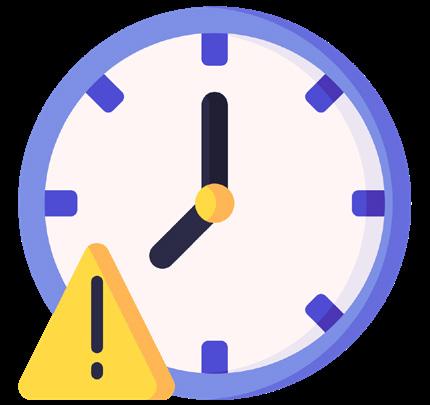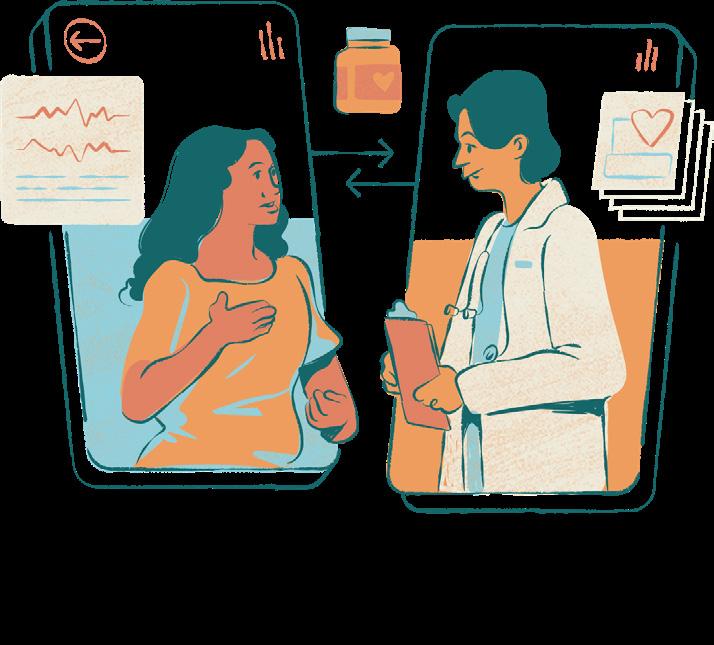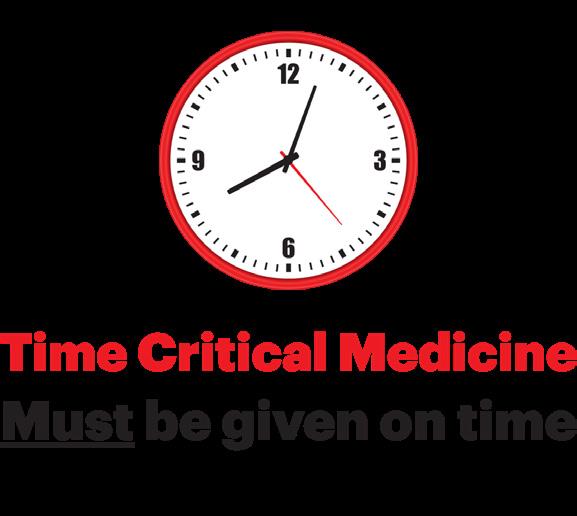









Time critical medicines (TCMs) are those that need to be given or taken at a specific time. A delay in receiving a dose or an omission of a dose entirely may lead to serious patient harm or substantial suboptimal therapy. Examples of TCMs include insulin, medicines for Parkinson’s disease and epilepsy, anticoagulants, and antimicrobials.
• A delayed dose of a TCM is defined as one which is administered more than 30 minutes after the scheduled time.
• A missed dose of a TCM is defined as one which has not been administered before the next dose is due. TCMs should never be omitted unless there is a valid clinical or safety reason for omission. The reason(s) should be documented in the person’s clinical notes.
• Missed or delayed administration of TCMs can result in deterioration in disease control and may lead to increased morbidity, mortality and/or length of hospital stay. Patients can also suffer distress owing to an increase in symptoms or a loss of control of their condition.
See table overleaf for examples of time critical medicines.

• Be aware of commonly prescribed TCMs, particularly those due for administration outside of standard medication rounds. Liaison with pharmacists and timely medicines reconciliation can highlight prescribed TCMs and prompt supply.
• Use of alert labels (such as below) by pharmacy to identify TCMs.

• Prioritise patients on TCMs during medicines administration rounds. Aim to replicate patient’s at-home administration schedule.
• Delayed or missed doses of TCMs should be reported via standard medication safety incident reporting systems. This facilitates audit of issues with TCMs such that targeted supports for staff can be developed.

Table: Examples of time critical medicines
(This list is not exhaustive, rather it highlights commonly prescribed time critical medicines)
Drug group/class Examples of medicines
Anti-Parkinsonian Agents

Co-beneldopa (Madopar®)
Co-careldopa (Sinemet®)
Pergolide, Pramipexole, Rotigotine, Ropinirole
Selegiline, Stalevo®
Anticoagulants
Antimicrobials
Apixiban, dabigatran, edoxaban, rivaroxaban, warfarin
Low molecular weight heparins (enoxaparin, tinzaparin)
Antibiotics
Antivirals
Antifungals
Antiretrovirals
Anti-epileptic agents
Insulin
Immunosuppressants
Opioids
Efavirenz, ritonavir, raltegravir, Symtuza®, Triumeq®, Genvoya®, Biktarvy
Carbamazepine, gabapentin, lamotrigine, levetiracetam, phenobarbitone, phenytoin, pregabalin, sodium valproate, topiramate
Benzodiazepines when used to treat epilepsy (clobazam, diazepam, lorazepam)
Rapid-acting (Fiasp, Apidra, NovpRapid)
Intermediate-acting (Humalog, Novomix, Humulin M3)
Long-acting (Lantus, Levemir)
Very long-acting (Toujeo, Tresiba)
Tacrolimus, sirolimus, mycophenolate, azathioprine, ciclosporin
Buprenorphine, codeine, fentanyl, morphine, oxycodone
Possible effect of delayed or missed doses
Impaired swallow
Increased risk of aspiration
Reduced mobility
Increased risk of fractures
Reduced ability to speak
Increased risk of clots and serious embolic episode (eg. deep vein thrombosis, pulmonary embolism)
Worsening of infections and increased risk of sepsis
Increases risk of detectable viral load, therefore increased transmission risk, and treatment resistance or failure
Loss of seizure control resulting in physical harm or other consequences such as permission to drive
Risk of hyperglycaemia and poor glycaemic control
Risk of rejection due to sub therapeutic levels
Poor pain control
Written by Margaret Brooks, Ita Fitzgerald and Elaine Lee,